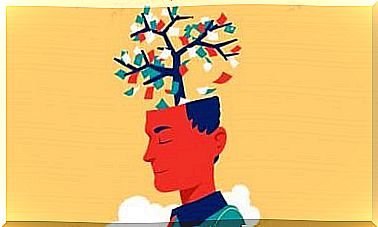How To Develop Social Skills In Children
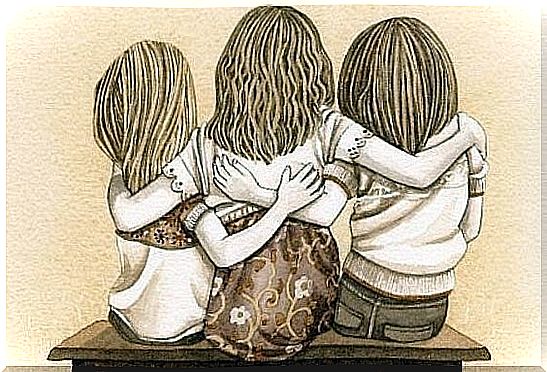
Developing correct social skills in children will not only help them build more positive relationships or interact much better with others. What we will put at your fingertips is the true core of social and emotional learning, where empathy and assertiveness are by themselves two indisputable psychic tendons.
Now let’s ask ourselves a simple question: ” How do our little ones really learn?” As many studies on social psychology tell us and even as Albert Bandura himself revealed with his experiments, children develop most of their learning through observation, imitation and continuous interaction.
Of course, we call all these processes “sociability” and they themselves form a determining foundation in the child’s life. Thus, depending on their quality and the experiences lived, the perceptions, attributions built and the socio-emotional learning assumed, healthy and effective social competencies will be shaped or, on the contrary, a series of deficiencies that usually be very problematic in pre-adolescence.
On the other hand, something that experts in child psychology tell us very often is that today’s social reality is much more complex for children than it was for their parents. The media, new technologies and the constantly changing rules of our society place our little ones on a terrain that is too big for them and for which they do not have a compass with which to position themselves.
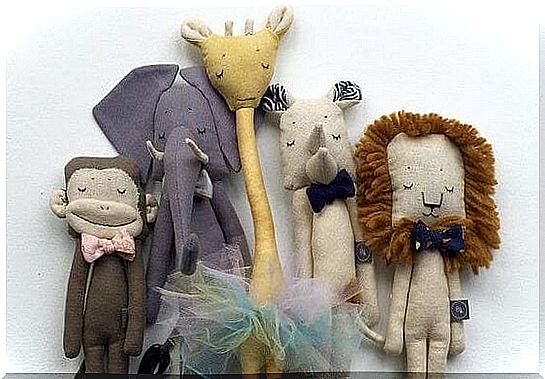
The ways of relating and even meeting people have changed, social networks or messaging services are more dynamic, offer new opportunities, are faster, lack filters, control mechanisms and instantaneously, of course, they are quite dangerous.
It is positive that the social development of children encompasses many areas, many areas and new settings. It is vital to put at their disposal those tools, sufficient and necessary, so that they can function effectively and healthily in an increasingly intricate social sphere; broader, but also valuable, after all. Hence the importance of learning social skills in children.
The development of social skills in children
One of the most effective strategies for teaching social skills in children is to create a “social language” from a very early stage. We speak above all about an understandable, basic and effective type of language that even 2-year-olds will be able to understand.
Let us remember that this age is a decisive moment in the growth of the little one. Now is when he begins to claim his early autonomy, to outline his character and to be much more receptive to everything that happens around him.
This social language that will favor the early development of social skills in children is based on the following dimensions:
- Learn to practice active listening. We cannot speak while the other person is saying something, we must respect times. This is something that costs them, because their self-control is still very limited. On the other hand, the best way to teach them is by example: if we don’t interrupt them, they will learn not to interrupt us.
- Youngsters must learn to show gratitude, to know when and how to apologize, and to include a “please” in their demands. Let us teach them, either by the implicit way or the explicit way, the difference between a request and a demand.
- Adequate social language also includes different “wisdoms”: that of giving ourselves positive reinforcement, knowing how to say “thank you”, knowing how to tolerate, knowing how to share, recognizing when others do something well and when I am the one who is wrong.
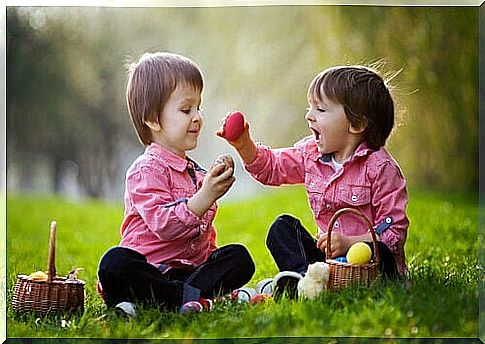
Help them build a positive self image
Getting our children to learn from a young age to value themselves, to love themselves and to protect their rights and identity is to invest in their quality of life and is to give wings to their personal potential. However, how to achieve it? Sometimes we are so immersed in fostering curricular competencies in them and in making them good at math and proficient in English that we completely neglect what is most essential: fostering a positive image of themselves.
Keys to promoting good self-esteem in children
- Be his best model, be his best reference and a figure to imitate on a day-to-day basis.
- Spend quality time with your children. It’s not just about being “present,” but about your presence being nurturing, supportive, and inspiring.
- Offer them opportunities. The little one who feels competent builds correct self-esteem every day.
- Avoid labels at all costs, do not compare him with other children or with his siblings or with anyone else. That child is unique, valuable, and capable of doing incredible things on his or her own.
- Always value their efforts. Also, before resorting to mere sanction or negative criticism, teach them the right way to do things.
Keys to develop assertiveness in our children
We must offer children adequate tools so that they learn to manage their emotions early. Only then will they realize that anger or anger, for example, must be previously controlled in order to express anger, disappointment or contradiction correctly and intelligently.
- Support children’s initiatives. As long as these are permissible and safe, they need to feel comfortable getting involved in new activities, new projects, and new dreams. It is very healthy for our children and adolescents to perceive themselves as worthy and capable of having their own goals and objectives. Likewise, it does not matter if they fail or make mistakes later, that learning is key to favor their assertiveness.
- It encourages the child to learn to be assertive from an early age in different settings. Let him, for example, be the one who buys that train ticket, he who, together with you, makes that purchase in the store. Encourage him to go play with those children he does not know from the park, to ask his teacher for help when he does not understand something …
- Likewise, it is always helpful if we give them certain “scripts” on how to protest or defend themselves when something does not seem fair to them. A good way to achieve this is by promoting democratic and constant dialogue in the home, where we all have the right to speak, to be heard and to be respected.
Learning to live together and enjoy social relationships
Few gifts are so valuable to a person than to enjoy a childhood in the company of those first friends, those first adventure allies, those wonderful accomplices of mischief and fabulous discoveries. Encouraging these early links and their quality is also our responsibility, thus enhancing the development of social skills in children.
- We must teach them models of respectful relationships, where cooperation, respect, empathy and complicity will help them build more positive bonds.
- Likewise, to know how to live in harmony with their peers and other people, they must identify and know how to react to those aspects that deteriorate coexistence. An example of this is undoubtedly aggressive language, contempt, offense, mockery, voiding others and criticizing.
- On the other hand, as parents or educators we must also support the friendships built by children. We must be that person always close to whom they can consult when a problem arises, a conflict, a doubt, a concern related to their friends.
Learning to resolve conflicts
Life is not always in a straight line, it is not easy, sometimes it hurts and it is tremendously confusing. Something that without a doubt we would like to be able to remove one by one all difficulties, all problems and possible conflicts that may appear in the lives of our little ones. However, if we did, we would not be educating a child to live in society, we would be modeling a person to live in an aseptic and unreal environment.
Since at some point in their lives they will come face to face with those contradictions so common in the human being where the seed of conflict arises, it is necessary that we give them strategies so that from this disagreement, something good always arises for all parties. These would be some keys.
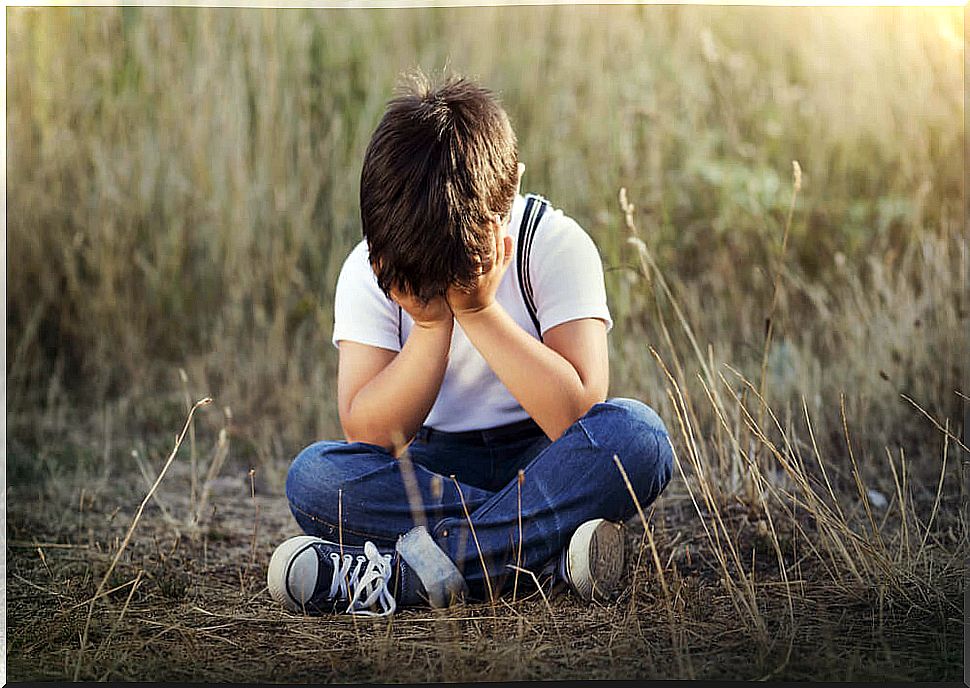
- Help him develop good self-confidence. He must feel safe when expressing, acting, interacting with someone who disagrees with him.
- Let’s encourage an attitude of non-violence. Aggression, screaming or any type of expression that involves violence does not solve anything. On the contrary, it increases it.
- Let’s provide you with some simple guidelines to help you start controlling your emotions.
- Likewise, dimensions such as assertiveness, tolerance and good decision-making are strategies that the child must consolidate over time in order to feel more effective when it comes to resolving conflicts.
- On the other hand, skills such as a sense of humor or creativity are very effective tools to defuse conflicts and lead them through much more enriching outings.
To conclude, something that we should also bear in mind about social skills in children is that we do not tend to give too much importance to this dimension during early childhood. However, when reaching the last grades of primary school and especially in adolescence, socialization problems, suffering and conflicts suddenly appear.
The correct development of social skills in children is not limited only to “offer strategies” such as who offers vitamins, an instruction book or a gift that one does not know very well how to use. It is above all about sensing needs, and that is where we need the collaboration of all groups. It is therefore imperative that families are in contact with teachers and vice versa to promote the development of social skills in children. We need to be more sensitive to their internal world where often, the deepest deficiencies end up expressing themselves in the least appropriate way …
Social skills in children are of primary relevance. Let’s give them the value they deserve in childhood.
Bibliographic references
Moraleda, M (2009). Skillful social behaviors in childhood and adolescence. Promolibro.
Nuns, I. M (2010). How to promote coexistence in children: keys to assertiveness and social skills. Madrid: CEPE.
Beudoin, N. M (2009). Every child can be a millionaire in social skills. Barcelona: EOS.







